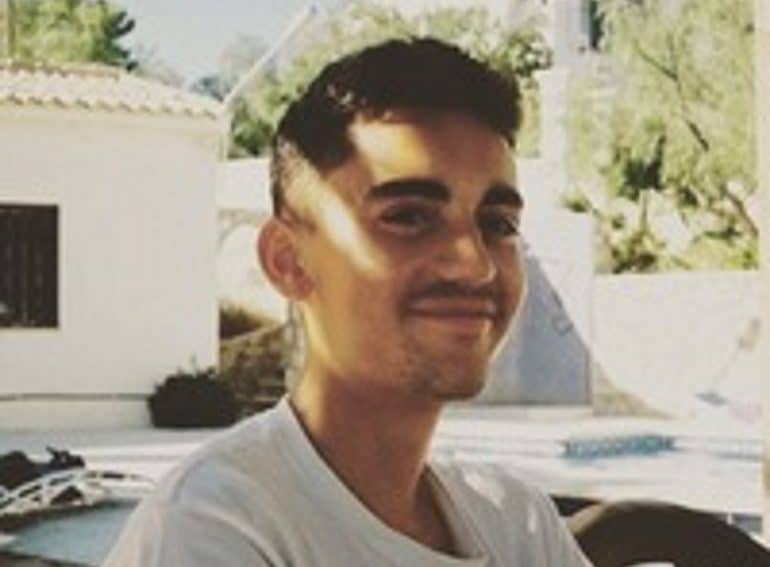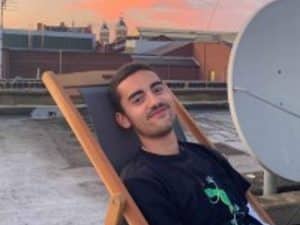
After graduating from Cambridge, Marco Miglio took a long, hard look at the opportunities open to him in the commercial world – and decided to go in another direction altogether.
 He recently began a new post working for an NHS Crisis Resolution Team, which involves directly helping people suffering from severe mental health problems.
He recently began a new post working for an NHS Crisis Resolution Team, which involves directly helping people suffering from severe mental health problems.
Marco (OE 2007-2014) says: “Every day feels like an opportunity to make an impact on someone and I wake up looking forward to going into work, which I never thought could be possible.”
He first became interested in this area while studying for his undergraduate degree in Human, Social and Political Sciences at Cambridge and taking a few psychology modules. After he graduated and came back to London, he took a Master’s degree in Social and Cultural Psychology at LSE.
“Whilst doing my Master’s, I did short stints at big consulting companies such as Bain and PwC – and found corporate culture unfulfilling. Many of my friends from university were contemplating careers in law, banking and consultancy, and none of these felt like a natural fit for me.
“I felt so lucky to have received some of the best education in the country and wanted to utilise this to empower and benefit those most in need, and so I tried to get as far away from corporate life as possible and found a job in mental health.
“My first job in mental health was working for a charity for a year-and-a-half that runs care homes for men with criminal histories who also have mental health problems. This job felt like a perfect fit for me, and over time, I realised that the work that came most naturally to me was dealing with acutely unwell, violent and risky patients.”
His new post, as an assistant practitioner within Camden and Islington NHS Foundation Trust’s Crisis Resolution Team, felt “like a natural progression” from his previous role.
Marco explained a little about what his job entails: “Each NHS trust commissions multiple crisis teams, and at the minute I work in the North Camden Crisis Team, based in Belsize Park. The crisis team work with some of the most acutely unwell people in the local area: usually our caseload tends to have up to 40 people, most of whom are actively psychotic and suicidal.
“My working week is split between conducting home visits to our caseload, and working on the Crisis Team Single Point of Access phone lines. When I’m out doing home visits, a major part of this is to assess the risk levels of our patients (which is usually very high and so needs to be monitored in case it changes and they become too risky to keep themselves safe), provide brief supportive counselling, supervising their medication and helping them get referred to local mental health services offered by the NHS or charities.
“Unfortunately, sometimes our patients are so suicidal that they are beyond our remit and we have to push for them to be taken to A&E or to be sectioned for their own wellbeing.
“The remainder of the week I work in what is called the Single Point of Access phone line, in which we triage and accept referrals from patients, their GPs, family members, and the police. We take these clients on and then work with them to get them out of their mental health crises.
“A small part of this role is de-escalating our distressed patients and effectively ‘talking them off the ledge’, as it were, to try to keep them safe until our team is able to work with them. Ending a phone call with a patient who initially phoned saying they were about to take their own life but now says that they feel able to keep themselves safe makes me truly appreciate the importance of the work that we do, and despite how emotionally demanding it can be, I know it’s one of the most necessary jobs, especially in a time when mental illness affects more of us than ever before.
“Whilst working in mental health is incredibly rewarding, it’s not a job I’d recommend to everyone. (All the teams I’ve worked with so far have joked that the job is so stressful and draining that you’d have to be slightly mad yourself to want to work in the sector.) Rotating shift patterns are exhausting; verbal abuse and death threats from patients are extremely common; I’ve seen colleagues get attacked, and have been in quite a few sticky situations myself. That said, I wouldn’t have it any other way and feel lucky to have a job that I genuinely enjoy.
“In terms of my long-term goals, I’m thinking of becoming a child and adolescent psychotherapist. Most of my work so far has been with severely unwell people, and in future I’d really like to start working with patients at the opposite end of the spectrum, who are experiencing their first symptoms of mental illness and to try and help them explore the reasons behind these symptoms and work with them to help them recover before they develop chronic mental illnesses.”
Marco spoke of the important role fellow QE alumni continue to play in his life. “Given the intense nature of the job and how understaffed and overworked NHS staff are, having a good support network outside of work has been really important in maintaining my own wellbeing.
“I’m extremely lucky to have such a supportive network of family and friends around me, some of whom are Old Elizabethans. There are a group of about ten of us who still see each other most weeks, and we go on holiday every summer, and it has been a privilege to remain so close to them and watch them go into jobs where they’re making a difference.”
